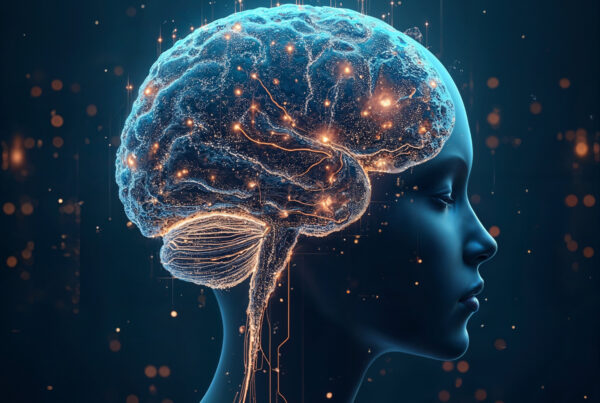In the clinical trial Dose-related effects of ketamine for antidepressant-resistant symptoms of posttraumatic stress disorder in veterans and active-duty military: a double-blind, randomized, placebo-controlled multi-center clinical trial, researchers examined how different doses of ketamine affect veterans and active-duty military personnel suffering from treatment-resistant PTSD. This study stands out not only for its large sample size and methodological rigor, but also for its nuanced findings: while ketamine failed to significantly reduce PTSD symptoms compared to placebo, it did produce rapid, dose-dependent antidepressant effects, particularly at the standard 0.5 mg/kg dose.
With mental health challenges disproportionately affecting military populations, the need for novel, fast-acting therapies is critical. Traditional treatments often fall short—particularly for those with PTSD compounded by major depressive disorder. This study aimed to determine whether ketamine could offer relief where antidepressants had failed, while also examining its tolerability, dissociative effects, and impact on depression.
Study Design and Participants
The study enrolled 158 veterans and active-duty service members with confirmed PTSD diagnoses that had proven resistant to prior antidepressant treatments. Participants were randomly assigned to one of three groups:
- Placebo
- Low-dose ketamine (0.2 mg/kg)
- Standard-dose ketamine (0.5 mg/kg)
Over the course of the trial, ketamine was administered under controlled conditions with rigorous double-blind procedures in place to minimize bias.
Primary and Secondary Outcomes
Researchers used several standardized instruments to assess outcomes:
- Primary Outcome: The PTSD Checklist for DSM-5 (PCL-5), a validated self-report measure
- Secondary Outcomes:
- Clinician-Administered PTSD Scale for DSM-5 (CAPS-5)
- Montgomery–Åsberg Depression Rating Scale (MADRS)
This multifaceted approach allowed for a more comprehensive understanding of how ketamine influenced both PTSD and comorbid depression symptoms.
Antidepressant Effects Observed at Standard Dose
While the trial’s primary endpoint—the improvement in PTSD symptoms—was not significantly different across the three groups, an important finding emerged: the standard dose of ketamine (0.5 mg/kg) significantly improved depressive symptoms as measured by the MADRS.
This result aligns with prior studies highlighting ketamine’s fast-acting antidepressant properties, suggesting that its benefits may be more pronounced for depression than PTSD per se. Crucially, the antidepressant effects appeared rapidly after administration and were evident within hours, making ketamine a potentially valuable intervention for those at risk of self-harm or functional decline.
Tolerability and Side Effects
An essential concern in any pharmacological study—especially involving psychedelics or dissociatives—is safety and tolerability. The trial revealed several important findings:
- Dissociative and psychotomimetic effects (e.g., perceptual changes, altered time sense) were observed shortly after dosing.
- These effects were dose-dependent and most prominent with the standard dose.
- Symptoms resolved within 2 hours and became less pronounced with repeated administration.
- No significant differences in treatment discontinuation rates were observed among groups, indicating that ketamine was well-tolerated overall.
PTSD Symptoms: No Clear Benefit
 Despite the promising antidepressant response, the study did not demonstrate a statistically significant improvement in PTSD symptoms at either dose level. While this may appear disappointing, it raises important questions about how PTSD and depression differ neurobiologically, and whether ketamine’s mechanism of action—primarily through NMDA receptor antagonism—is more aligned with mood regulation than trauma-specific processing.
Despite the promising antidepressant response, the study did not demonstrate a statistically significant improvement in PTSD symptoms at either dose level. While this may appear disappointing, it raises important questions about how PTSD and depression differ neurobiologically, and whether ketamine’s mechanism of action—primarily through NMDA receptor antagonism—is more aligned with mood regulation than trauma-specific processing.
Secondary analyses suggested some individual variation, with a subset of participants reporting subjective improvement. However, this was not strong enough to meet statistical thresholds for primary outcome success.
Interpreting the Dual Impact
Why would ketamine alleviate depression but not PTSD? Several hypotheses are being explored:
- Neural circuit differences: Depression and PTSD may engage overlapping yet distinct networks. Ketamine’s action on the glutamatergic system may be more directly beneficial for the former.
- Dose-response variability: It’s possible that higher or more prolonged dosing is needed for PTSD effects.
- Measurement sensitivity: The tools used may not fully capture the rapid shifts in internal processing ketamine induces.
Regardless, the observed antidepressant effects—especially in a difficult-to-treat population—should not be underestimated.
Implications for Clinical Practice
For veterans and service members with dual diagnoses of PTSD and major depressive disorder, this study suggests a potential clinical pathway:
- Ketamine may be introduced primarily for managing depression, especially when other antidepressants have failed.
- Its administration should be carefully supervised due to the transient nature of side effects.
- Regular assessment and tapering strategies may help maximize benefits and minimize dependency risk.
Importantly, these results support expanding access to ketamine-assisted therapies within military and veteran healthcare systems.
Limitations and Next Steps
Several limitations of the study should be considered:
- The study was limited to two doses; intermediate or escalating dosing strategies were not tested.
- Long-term effects were not assessed, leaving questions about durability unanswered.
- Outcomes relied heavily on self-report instruments, which may miss subtler therapeutic changes.
Future research should explore:
- Combining ketamine with trauma-focused psychotherapy
- Repeated dosing schedules or maintenance infusions
- Functional imaging to track brain-based changes
Conclusion
The trial Dose-related effects of ketamine for antidepressant-resistant symptoms of posttraumatic stress disorder in veterans and active-duty military reveals a nuanced picture of ketamine’s role in mental health care. While it may not significantly reduce PTSD symptoms on its own, standard-dose ketamine shows rapid and meaningful antidepressant effects in a population where treatment options are limited and often ineffective.
Given its tolerability and fast action, ketamine may offer relief for veterans caught in the grip of depression, even when PTSD remains challenging to address. This trial adds to the growing body of evidence that precision, dose-sensitive ketamine therapy could become a cornerstone of next-generation psychiatric care.
References
- Abdallah CG, Averill CL, Akiki TJ, et al. Ketamine treatment and global brain connectivity in major depression. Neuropsychopharmacology. 2017;42(6):1210–1219. https://doi.org/10.1038/npp.2016.186
- Feder A, Costi S, Rutter SB, et al. A randomized controlled trial of repeated ketamine administration for chronic posttraumatic stress disorder. Am J Psychiatry. 2021;178(2):193–202. https://doi.org/10.1176/appi.ajp.2020.20050596
- Krystal JH, Abdallah CG, Sanacora G, et al. Ketamine: a paradigm shift for depression research and treatment. Neuron. 2019;101(5):774–778. https://doi.org/10.1016/j.neuron.2019.02.005
- Marmar CR, Brown AD, Qian M, et al. Mental health impact of combat exposure, PTSD, and depression in military personnel. JAMA Psychiatry. 2015;72(5):489–495. https://doi.org/10.1001/jamapsychiatry.2014.2726
- Liriano F, Hatten C, Schwartz TL. Ketamine as treatment for post-traumatic stress disorder: a review. Drugs Context. 2019;8:212305. https://doi.org/10.7573/dic.212305




